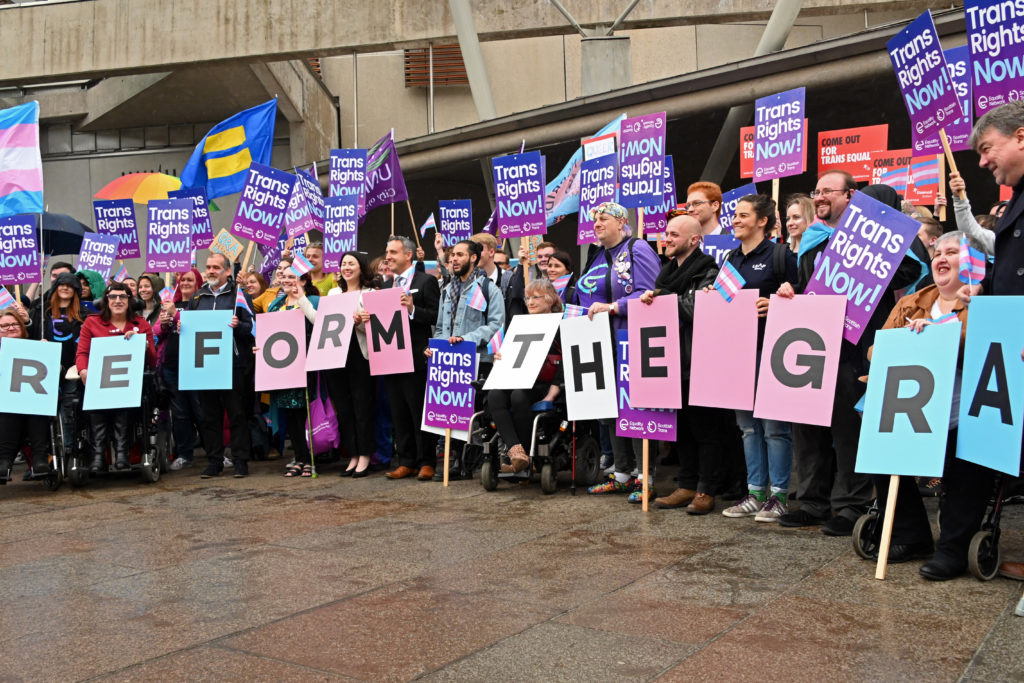Protesters demonstrate outside the Scottish Parliament for reform of the Gender Recognition Act, in an event organised by the Scottish Trans Alliance, on June 12, 2019 in Edinburgh, Scotland. (Ken Jack/Getty Images)
Proposals floated by the SNP to reduce the length of time trans people must live in their “acquired gender” before getting a Gender Recognition Certificate are backed by a majority of Scots, according to a new poll.
Scottish government plans to simplify the process by which trans people change the gender on their birth certificates include reducing the waiting time from two years to six months.
The Gender Recognition Act is the mechanism by which trans people change the gender on their birth certificate, by obtaining a Gender Recognition Certificate (GRC).
The new poll, commissioned by The Times, found that 38 percent of Scots agree with the proposal to cut the time a trans person must wait to get a GRC from two years to six months.
But 34 percent of Scots in the Panelbase survey, which included responses from over a thousand people, disagreed with the plan.
And only a third of Scots approve of plans to allow trans 16- and 17-year-olds to legally change their gender – plans that would make the process of entering adult life much easier for trans youth, who currently gain school certificates and other documentation in their birth gender and must then update these documents when they are old enough to change their legal gender.
James Morton, manager of the Scottish Trans Alliance, told The Times: “There are considerable misunderstandings about legal gender recognition, with many people incorrectly believing it is irreversible or that it relates to surgery, and these misunderstandings negatively impact on public opinion. We look forward to fair and factual parliamentary scrutiny of the forthcoming draft bill.”
The Scottish Government has said it will publish a draft gender recognition bill by the end of the year, promising a full consultation and equality impact assessment on the proposed changes – despite having run a full public consultation on the proposed changes that closed in March 2018.
The Scottish Government has also already said that the proposed changes will not include extending legal recognition to non-binary trans people.
A Scottish government spokesperson told The Times there had been growing recognition that the process of securing gender recognition is currently “overly complex and medicalised and can be deeply traumatic and stressful for those going through it”.
